Teens feel they're being manipulated by tech giants
A new report from US youth-advisory NPO Common Sense claims 72% of US teens feel they are being manipulated to spending more time on their smartphones.
September 11, 2018

A new report from US youth-advisory NPO Common Sense claims 72% of US teens feel they are being manipulated to spending more time on their smartphones.
The report, which covers a wide range of topics from the preferences of teenagers in the US through to the emotional impact social media has on their lives, makes the bold claim Silicon Valley is playing the puppet master with the emotionally fragile teens being pulled from pillar to post. Unfortunately, while these teenagers realise they are being manipulated into spending more time on mobile devices as opposed to other important tasks, they seemingly feel somewhat powerless to resist.
“They understand that tech companies are manipulating them into spending more time on their devices, but they aren’t always able to resist,” the report states. “This is especially concerning when it comes to teens going to sleep or driving, where the potential health impacts for young people are substantial. But there are other, subtler ways in which teens may not even realize they’re being tracked or manipulated.”
With 72% recognising they are possibly being manipulated into spending more time staring at the tiny screen, you have to question why they are seemingly accepting this as an inevitability. Unfortunately, whether recognised or not, due to the way in which the digital society has developed, teenagers are becoming empowered or disillusioned by the success of social media activities. Although the negative impact is noted, the acknowledgement is not enough to remove the strangle hold on the emotional well-being of this demographic.
For those who are classed as having low social-emotional well-being, 70% sometimes feel excluded when using social media, 43% have deleted posts due to not having enough ‘likes’ and 43% feel bad about themselves if no-one reacts to their posts. The post reaction is an interesting one which the technology companies seem to be capitalizing on by expanding the variety of ways users can interact with a post (a range of different emojis). This has the power to compound the impact of the reaction on the user. 21% also feel more popular by using social media, 20% more confident and 18% better about themselves. These statistics show there is the power of good in social media.
While we might feel sorry for this apparently emotionally fragile segment of society, you have to question whether this is to patronising. It is easy to sit upon a strident high-horse and cast criticism down, though some adults should perhaps have a look at themselves. Your correspondent is guilty of checking how many likes have been received when putting something up on social media. Just because the media attention is directed towards teenagers does not mean we are not just as vulnerable or crave the validation of social media acceptance.
Another interesting aspect of the report is the way in which we communicate. Unsurprisingly, preference for face-to-face communication is declining, though it has now been over-taken as the most popular answer in favour of texting. Texting was selected as the top answer by 35% of respondents, in-person by 32%, 16% for social media and 10% selected video chatting.
Digital means of communicating are becoming increasingly popular, this is not news, though the question should be asked as to whether this is the new norm. This demographic is the first which could genuinely claim to be digitally native, and considering the aggressive thrust of technology in the face of young people nowadays, there should be little surprise. Perhaps this is only a blip, and as these young people mature they will realise the value of face-to-face communications? We doubt it, and believe this to be another patronising assumption.
Again, adults are not immune from this behaviour for which teens get criticized so heavily for. In your office, how often do you send an email instead of walking the thirty yards to have a conversation with a colleague? How often are phone calls ignored? How often are catch-ups done nowadays over the phone instead of going to grab a coffee? This might sound incredibly preachy, but your correspondent is incredibly guilty of it, occasionally ignoring a phone call in the knowledge an easier-to-deal-with email or WhatsApp message would follow.
Hearing technology companies are potentially emotionally manipulating teenagers into using their platforms more often is hardly a surprise, it is how they make money after all. But before you feel too sorry for the teenagers of the world, perhaps you should consider how much of a hold these platforms have on your life.
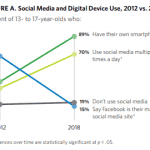 Device usage
Device usage
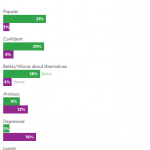 Impact of social media
Impact of social media
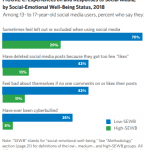 Impact of social media
Impact of social media
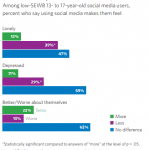 Impact of social media
Impact of social media 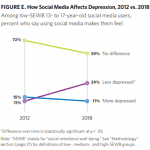 Impact of social media
Impact of social media 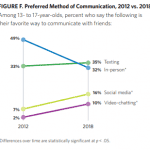 Preference for interaction
Preference for interaction
About the Author
You May Also Like










.png?width=300&auto=webp&quality=80&disable=upscale)


_1.jpg?width=300&auto=webp&quality=80&disable=upscale)